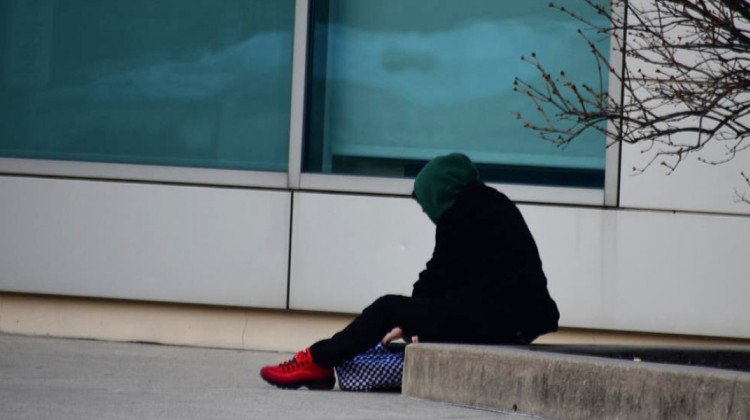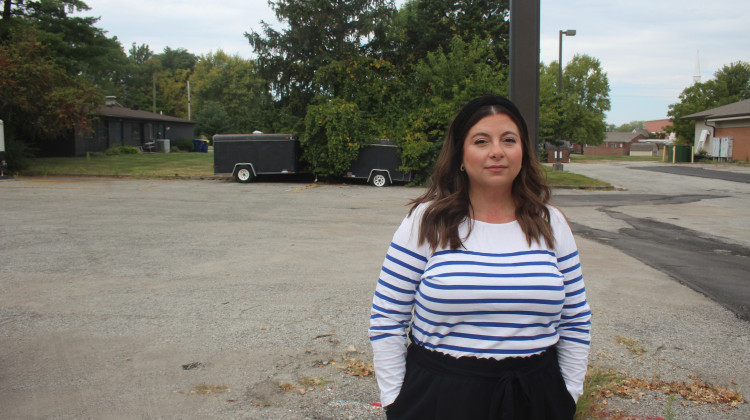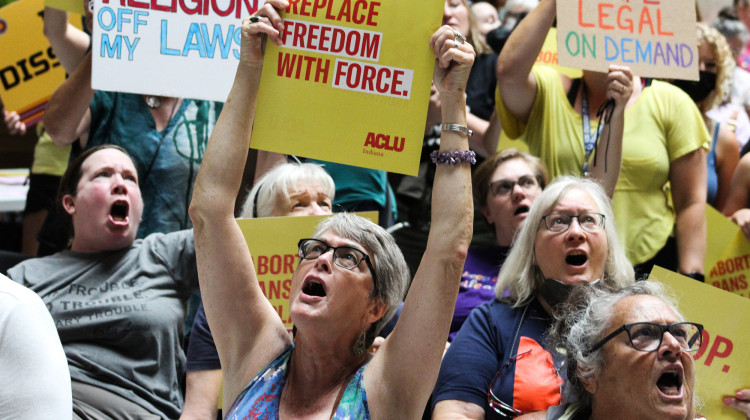For Suzanne Kawamleh, it’s been a rollercoaster of a few weeks.
“I am Syrian-American. My family are refugees, it’s not something to be proud of and its not something I would ever wish on anybody,” Kawamleh says. “But it’s the truth.”
A federal appeals panel unanimously ruled Thursday to reject President Donald Trump’s bid to reinstate his immigration and travel ban. The ruling allows refugees and immigrants from seven countries to continue to travel to the U.S. for the foreseeable future.
And the federal judges’ 3-0 ruling against reinstating Trump’s order means a lot to Kawamleh.
“I found out through Facebook, I think,” Kawamleh says with a laugh. “It felt like a victory and it felt like a voice of reason amidst all the madness.”
When Trump signed the order on Jan. 27, Kawamleh and her family were directly affected.
She was born in the U.S. But she also holds Syrian citizenship. Growing up, she lived in Syria off and on, going almost every year.
She remembers the way it used to be.
“Jasmine is the known flower,” Kawamleh says. “So, when you walk in the streets its just the vines and flowers and the scent of jasmine everywhere before the city wakes up.”
That all changed. In 2011, the Syrian civil war broke out. It began with protests in her family’s hometown. Now, she says, the town is unrecognizable.
“It’s not the same streets and it’s not the same buildings,” Kawamleh says. “One of our homes was shelled and so that wasn’t there anymore. And the other home was taken by extremist forces.”
A Chance Encounter
The war ravaged Syria. She watched from afar, still making her yearly trips – now to refugee camps.
Many of her cousins, uncles, aunts were forced to flee their homes. They became refugees.
Kawamleh went to the refugee camps to find her family and to serve as a nurse.
Then this happened.
In a field hospital, he was one of her first patients. He recognized her.
“It turns out he was our neighbor from childhood,” Kawamleh says. “His groin area and his right leg was completely detached from explosive bullets.”
Bullets supposed to have gone next door, – to Kawamleh’s family. Family members had spoken out against Syrian government forces.
“He took a bullet for something that was intended for us,” she says. “For my home, for my family.”
The Order
When Trump signed the executive order on Jan. 27, it had far-reaching impacts. It affected travel and immigration from seven countries: Iraq, Syria, Iran, Sudan, Libya, Somalia and Yemen.
It was written to be temporary for six countries. But Syria was an indefinite ban.
“They’re fleeing from ISIS, they’re fleeing from the Assad regime,” Kawamleh says. “But you’ve suddenly characterized them en masse as being a threat to our national security. It doesn’t actually make any coherent sense to me.”
After the order, she looked for ways to get involved.
Kawamleh attended rallies. She went to O’Hare airport in Chicago and joined in chants. She stood on the steps of the courthouse Bloomington and gave a speech.
‘We Want You Here’
A week after the ban was announced, Kawamleh went to an information session at Indiana University. It was for students, faculty and staff affected by the order. Kawamleh wanted to know what the order would mean for her.
At IU, she’s a doctoral student in philosophy, and she’s currently teaching ethics to undergraduates.
In a bright blue hijab, she’s also visibly Muslim.
As she walked into the information meeting, she says she was surprised, “Looks like there’s a lot of people actually.”
Then something catches her eye.
“Signs! About caring about Muslim students and we support our international students which is awesome,” Kawamleh
Her favorite sign had four words: “We want you here.”
“’We want you here’ because that’s all anyone wants to hear, whether you’re a refugee or immigrant or anything else, is that you’re wanted,” Kawamleh says.
A New Ruling And Beyond
Kawamleh felt like the country said “we want you here” on Thursday. The federal appeals panel decided to reject President Trump’s bid to reinstate his immigration and travel ban.
She relaxed.
“It’s good to take a moment and be like, ‘We’re OK, it’ll be OK, this is good,” Kawamleh says, sitting in her office at IU. She hasn’t had many moments like that lately.
Kawamleh knows it’s not over, though. The case surrounding the immigration order looks slated to go to the U.S. Supreme Court.
She knows the roller coaster she’s on has its ups – and its downs.
The day following the federal panel’s order, she sees something outside her office door for the first time. A four-sided figure is etched into her office sign: a swastika.
“I know it’s not for one of my officemates,” Kawamleh says. “I’m going to report it and then move on with my life, then go to class and teach and hope it was none of my students, to be honest.”
“I think that’s the scariest part,” she says.
She’s not sure what comes next.
 DONATE
DONATE








 Support WFYI. We can't do it without you.
Support WFYI. We can't do it without you.